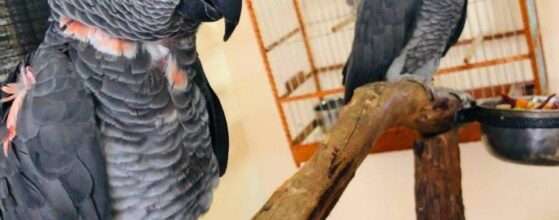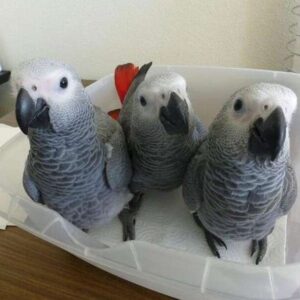
- by FPABS-Admin
- 0
- Posted on
African grey parrot care
African grey parrot known for their intelligence, unique personalities long lifespan in some species, over 30 years and striking colouring. Some varieties such as African Greys, Amazons and Quakers have tremendous vocal ability, resulting in the capacity to mimic the human voice, much to their owner’s delight.
Making a home for your parrot
Parrots can be a variety of sizes depending on their species however a good rule of thumb to follow is that their cage should be at least double the size of their full wingspan although the bigger, the better. Parrots do not always share their space well with others, even those of their own kind, so be careful if you plan to mix your birds, watching closely for signs of aggression.
Free flying
Parrots need a lot of time flying freely, ideally up to four hours a day. This can be done around the home, making sure that all windows and doors and dangers such as electric fans are switch off, and other pets keep safely away.Parrots enjoy daily bathing. Facilitate this by placing a bird bath in their cage, misting lukewarm water above their head, or turning on the tap or shower when they are flying freely in the home, which they may investigate with joy.
 Feeding your parrot
Feeding your parrot
Provide your parrot with fresh, top quality seed mixes and water on a daily basis. Other, snack size foods can also be offer such as bananas and leafy greens. Remember to research beforehand which foods are suitable for parrots, as some are surprisingly detrimental to their health, including avocados.
Keeping parrots healthy
Watch out for any signs of disease, including  such as weight fluctuations, breathing problems or mites. Maintain good hygiene of their home, regularly cleaning and washing the cage, food and water containers, and changing the ground covering.Parrots also need to have their nails regularly trimmed. A professional bird groomer or vet can do this, or show you how if you wish to carefully carry out the procedure yourself.
such as weight fluctuations, breathing problems or mites. Maintain good hygiene of their home, regularly cleaning and washing the cage, food and water containers, and changing the ground covering.Parrots also need to have their nails regularly trimmed. A professional bird groomer or vet can do this, or show you how if you wish to carefully carry out the procedure yourself.
